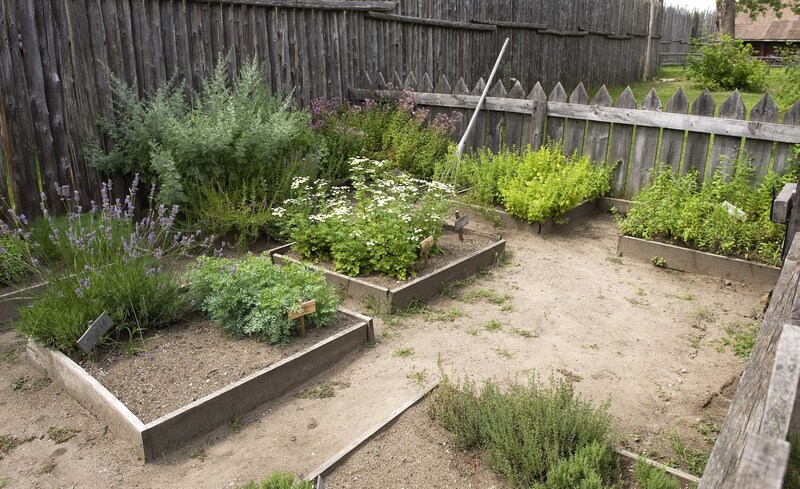Nature's Cycle: Waste to Vital Soil
Posted on 11/09/2025
Nature's Cycle: Transforming Waste into Vital Soil Health
In our rapidly urbanizing world, the question "What happens to our waste?" is more relevant than ever. Yet, nature has a remarkable way of turning discarded matter into vital soil, sustaining the very essence of life on Earth. Understanding the journey from waste to vital soil is crucial if we are to nourish our planet, reduce pollution, and ensure a sustainable future. Read on for an in-depth look at how organic waste is transformed through natural cycles into the cornerstone of vibrant agriculture and resilient ecosystems.

The Fundamentals of Nature's Recycling System
How Does Nature Convert Waste Into Rich Soil?
Nature's cycle is a seamless process where organic waste, whether from plants, animals, or humans, breaks down and returns nutrients to the soil. At its heart are billions of microorganisms--bacteria, fungi, worms, and insects--that collaborate to decompose organic matter, turning it into humus--the dark, nutrient-dense heart of healthy soil. This ongoing cycle not only prevents waste accumulation but also supports plants, animals, and our own food systems.
- Decomposition: The first step where organic waste is broken down by microbes, insects, and other decomposers.
- Mineralization: Microorganisms convert complex organic compounds into simpler inorganic forms usable by plants.
- Humification: Partially decomposed material is transformed into stable humus, improving soil structure and fertility.
Types of Organic Waste That Fuel the Soil Cycle
Not all waste is equal--some items nourish the soil, while others do not. The focus is on organic wastes:
- Kitchen scraps (vegetable peels, coffee grounds, fruit waste)
- Yard trimmings (leaves, branches, grass clippings)
- Agricultural byproducts (crop residues, manure, straw)
- Paper products if untreated and compostable
- Food industry & restaurant waste
In contrast, plastics, metals, and chemicals do not integrate into nature's nutrient recycling cycle and can even disrupt soil functions.
The Science Behind Turning Waste into Fertile Earth
Biological Agents: Nature's Decomposers at Work
The transition from organic waste to vital soil hinges on a diverse cast of decomposers:
- Bacteria: The biochemical powerhouses that initiate waste breakdown, especially at the surface level.
- Fungi: Essential for decomposing tough plant fibers like lignin and cellulose; mycelium networks cross-link and distribute nutrients.
- Earthworms: Aerate, mix, and enrich soil through their castings, densely packed with nutrients and beneficial microbes.
- Soil Invertebrates: Insects (e.g., beetles, ants) and other small creatures further break down debris and improve soil structure.
Chemical Transformation in Composting
Composting mimics nature's waste-to-soil cycle in a managed environment. Here's how it works:
- Aerobic decomposition: Oxygen-rich bacteria break down wastes, generating heat and speeding up the conversion to compost.
- Heat generation: Temperatures rise, killing off harmful pathogens and weed seeds.
- Humus formation: As the compost matures, stable organic matter is formed, boosting soil quality.
Proper composting balances carbon-rich ("brown") and nitrogen-rich ("green") materials, water, and aeration, ensuring an efficient and beneficial transformation.
Benefits of Closing the Loop: From Waste to Vital Soil
- Restores soil fertility: Compost returns essential nutrients (like nitrogen, phosphorus, potassium) to the earth.
- Improves soil structure: Humus enhances water retention, aeration, and resistance to erosion.
- Reduces landfill waste: Diverting organic matter from landfills decreases methane emissions and extends landfill lifespan.
- Boosts crop health: Plants grown in compost-rich soil are more resilient to pests, diseases, and droughts.
- Fosters biodiversity: Healthy soils teem with life, strengthening natural food webs and ecosystems.
Embracing nature's cycle of waste transformation means healthier food, a cleaner environment, and a more balanced planet.
Composting: Human Innovation Inspired by Nature
What is Composting?
Composting is the art of accelerating nature's waste-to-soil process under controlled conditions. By layering organic materials, managing moisture, and providing air, composters create ideal conditions for decomposers to thrive. The result is a crumbly, dark, and earthy-smelling substance that revitalizes gardens, farms, and public spaces.
Types of Composting Systems
- Backyard Composting: Traditional piles or bins suited for households and small gardens.
- Vermicomposting: Use of worms (often red wigglers) to rapidly break down kitchen scraps, producing superior compost.
- Community Composting: Shared spaces where neighbors pool organic waste and redistribute the finished compost.
- Industrial/Commercial Composting: Large-scale facilities using machinery and advanced techniques to process massive waste volumes.
Steps to Get Started With Composting
- Choose a spot: Locate a dry, shady area near a water source.
- Add 'greens' and 'browns': Alternate layers of nitrogen-rich items (fruit and veg scraps) with carbon-rich ones (leaves, cardboard).
- Maintain moisture: Compost should feel damp but not soggy.
- Turn regularly: This aerates the mix and accelerates decomposition.
- Harvest: After a few months, enjoy rich, dark compost beneath the top layers.
Urban and Rural Impact: Transforming Communities
City Initiatives for Waste-to-Soil Programs
Urban centers, once overwhelmed by mounting food and yard waste, are turning to municipal composting programs:
- Green bin collection: Residents separate organic waste, which is collected and processed by the city.
- Urban gardens: Finished compost is distributed to urban farms or public greenspaces, fostering local food resilience.
- Education campaigns: Cities promote nature-inspired recycling to reduce landfill use and improve soil health citywide.
Farming and Large-Scale Applications
For farmers, transforming agricultural waste into vital soil amendments cuts costs and boosts yields:
- Manure management: Animal and plant byproducts are composted on-site, returning nutrients to fields.
- Cover cropping and mulching: These practices recycle plant residues and boost organic matter in farm soils.
- Reduction of chemical fertilizers: Compost reduces the need for synthetic inputs, promoting sustainable agriculture.
Nature's Cycle and Climate Change
The natural waste-to-soil cycle helps fight climate change in several ways:
- Carbon sequestration: Healthy soils store more carbon, keeping it out of the atmosphere.
- Less methane from landfills: Decomposing waste in landfills creates methane, a potent greenhouse gas. Composting minimizes this emission.
- Resilient ecosystems: Robust soils support forests, wetlands, and grasslands that absorb and store more carbon over time.
Challenges to Nature's Cycle in Modern Times
Despite nature's enduring wisdom, several obstacles hinder the waste-to-vital-soil process today:
- Overuse of chemicals: Pesticides and synthetic fertilizers disrupt soil microbes and decomposition rates.
- Soil erosion and sealing: Construction, deforestation, and unsustainable farming strip soil or cover it, breaking the organic cycle.
- Contaminated waste: Mixing non-organic materials with compostables leads to toxins in finished compost.
- Lack of awareness: Many communities lack knowledge or resources for organic waste collection and composting.
Solving these issues requires policy changes, public education, and a renewed appreciation for nature's wisdom in recycling waste to build healthy soils.

Getting Involved: How You Can Support Nature's Cycle
Everyday actions, when multiplied, can restore nature's essential waste-to-soil cycle:
- Start composting at home--even a small bin on your balcony or in your kitchen can divert significant waste from landfills.
- Buy local and organic--support farmers who use compost and sustainable methods to nurture soil health.
- Educate others--share your knowledge about the importance of nature's recycling system with neighbors, schools, and family members.
- Advocate for green policies--encourage local councils to invest in community composting and organic waste collection.
By reconnecting with nature's powerful cycle, everyone has a role to play in regenerating soils, reducing waste, and securing a healthier future for our planet.
Conclusion: Embracing Nature's Waste-to-Soil Miracle
Nature's ability to transform waste into vital soil is nothing short of miraculous. The cycle is ancient, resilient, and essential--a continuous loop that sustains all terrestrial life. As our society faces growing environmental challenges, returning to and respecting this fundamental process is both a necessity and an opportunity. By harnessing nature's built-in recycling through composting, sustainable agriculture, and mindful consumption, we can repair degraded soils, reduce greenhouse gases, and leave a thriving earth for generations to come.
Let us join hands to foster a world where waste isn't an endpoint, but the beginning of new life--in soil, in plants, in our communities, and beyond.
Latest Posts
Crafting the Ideal Hedge: Trimming Techniques for Beauty and Function
Reclaiming Your Garden: The First Steps Toward Transformation
Wind Management Techniques to Enhance Garden Health
Chill-Proofing Your Garden: Essential Winter Care Strategies

